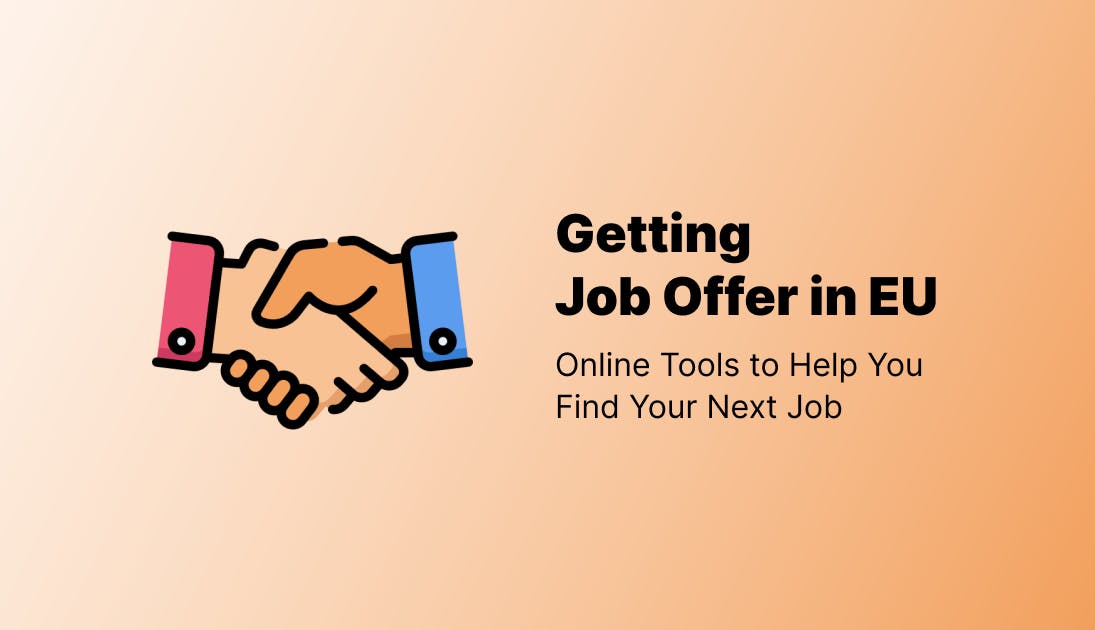1. Understanding the Job Market in the EU
Before embarking on your job search, it’s essential to gain a thorough understanding of the EU tech market. Research in-demand industries, emerging sectors, and job trends within your desired field. Analyze job postings and salaries to ensure alignment with your career aspirations.
- Eurostat: The statistical office of the European Union, providing a wide range of data on the European economy and society, including data on the labor market.
- Payscale: A service that provides detailed information about salaries, benefits, and compensation packages for a wide range of jobs.
- OECD Data: A resource that provides labor market statistics for countries, offering data about employment, unemployment, earnings, and hours worked.
2. Creating a Competitive Resume and Cover Letter
To impress potential employers and secure a visa, craft a compelling CV and cover letter that showcases your engineering expertise and aligns with the specific requirements of the job you’re applying for.
- Resume.io: Streamline your resume creation with Resume.io’s array of templates and customization options.
- Resume Genius: Harness the power of AI with Resume Genius, featuring writing suggestions and ATS optimization for increased visibility.
- Kickresume: Craft visually appealing resumes using Kickresume’s AI-powered builder, intuitive drag-and-drop interface, and diverse template selection.
- VisualCV: Elevate your professional presentation with VisualCV’s multimedia resume builder and seamless online sharing capabilities.
3. Language Requirements:
In addition to your technical skills, mastering the local language can give you a significant advantage when applying for jobs in the EU. Consider using language learning apps to accelerate your progress and achieve conversational fluency.
- Duolingo: Make language learning fun and engaging with gamified lessons and games.
- Babbel: Immerse yourself in the target language and achieve conversational fluency.
- Busuu: Community-based language learning app with a focus on interactive exercises and peer feedback.
4. Navigating the Application Process:
Apply strategically through job portals and company websites; meticulously follow application guidelines, and don’t hesitate to follow up on your applications while actively networking with HR professionals.
- LinkedIn Jobs: Connect with HR professionals, search for jobs, and apply directly.
- Indeed: Aggregate job postings from various websites for a comprehensive search.
- Glassdoor: Gain insights into company culture, salaries, and benefits through anonymous reviews.
- Wellfound: Connect tech companies with qualified tech candidates and provide career resources.
5. Work Visas and Legal Requirements:
Before relocating to the EU, it’s essential to understand the different work visa options available and the eligibility criteria. Prepare the necessary documents and be aware of your rights and benefits as an employee in the EU.
- European Commission: Find information on work visas and legal requirements for working in the EU.
- Visaguide: Get assistance with visa applications and immigration procedures.
- Expatica: Stay informed about news, information, and resources for expatriates living in Europe.
- Fair Work: Advocate for fair working conditions in the platform economy.
6. Leveraging Professional Networks:
Expand your EU professional network by actively engaging with industry peers, attending events, and leveraging online communities.
- LinkedIn Events: A professional networking platform where you can connect with professionals in your field, join groups, and participate in discussions.
- Meetup: A website where you can find and join online and offline communities for people with shared interests.
- Eventbrite: A website where you can find and register for events, including job fairs and networking events.
7. Interview Preparation:
Preparing for interviews is crucial for success. Familiarize yourself with common interview questions, practice your responses, and be confident in showcasing your abilities and experiences. Understand cultural nuances and tailor your communication style accordingly.
- Interviewing.io: A platform that connects you with experienced professionals for mock interviews and personalized feedback.
- Glassdoor Review: Uncovers company culture and interview experiences through anonymous employee reviews.
- InterviewCake: Empowers candidates with practice questions and expert tips to ace technical interviews.
- Prepfully: Provides mock interviews and personalized feedback from experienced professionals to help you prepare for actual interviews.
8. Preparing for Relocation:
Once you’ve secured a job offer and are ready to relocate to the EU, it’s important to plan for accommodation, understand housing options, and prepare for healthcare and insurance coverage.
- Flatio: Furnished apartments for rent in Germany with temporary housing solutions.
- Wunderflats: Verified furnished apartments for rent with a focus on easy booking.
- Housinganywhere: A platform connecting tenants with landlords for property rentals.
If you are looking for a job relocation, visit the Reloc.tech blog for more content.

Leave a Reply